Politics
Deadly crash prompts US to suspend foreign truck driver visas
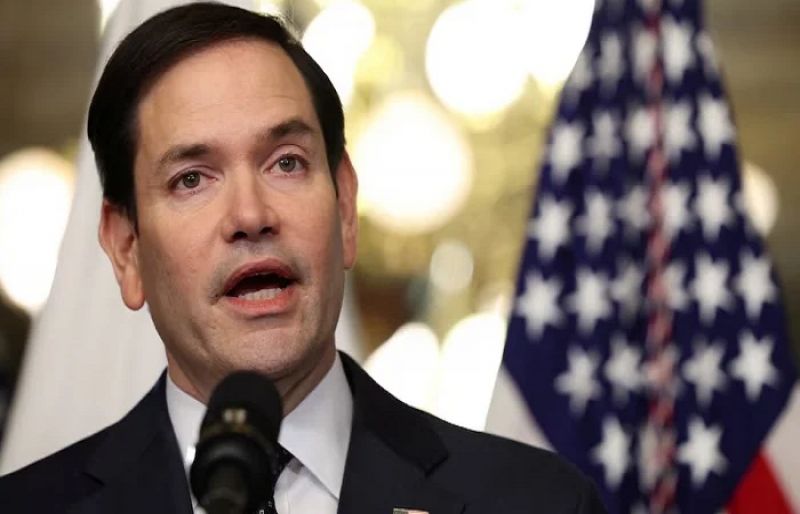

The Trump administration on Thursday abruptly halted the issuance of US visas for truck drivers following a fatal crash that drew national attention, marking its latest sweeping move against foreign visitors.
Effective immediately, we are pausing all issuance of worker visas for commercial truck drivers,” Secretary of State Marco Rubio wrote on X.
The increasing number of foreign drivers operating large tractor-trailer trucks on US roads is endangering American lives and undercutting the livelihoods of American truckers, he wrote.
Rubio’s action came after a truck driver was charged with killing three people on a highway in Florida while making an illegal U-turn.
Harjinder Singh, who is from India, allegedly entered the United States illegally from Mexico and failed an English examination after the crash, according to federal officials.
The case has gathered wide media attention and has been highlighted by officials in Florida, controlled by Trump’s Republican Party.
With the lieutenant governor flying to California to extradite Singh personally alongside immigration agents on Thursday.
The crash has taken on a political dimension in part as Singh received his commercial license in California and also lived in the West Coast state.
Which is run by the rival Democratic Party and opposes Trump’s crackdown on immigration.
“This crash was a preventable tragedy directly caused by reckless decisions and compounded by despicable failures,”.
Transportation Secretary Sean Duffy said.
California Governor Gavin Newsom’s office responded that the federal government under Trump had issued a work permit to Singh, who sought asylum, and that California had cooperated in extraditing him.
Even before the crash, Republican lawmakers had been targeting foreign truckers, pointing to a rising number of accidents without providing evidence of a direct link to immigrants.
In June, Duffy issued a directive that truck drivers must speak English.
Truck drivers have long been required to pass tests that include basic English proficiency, but in 2016, under former president Barack Obama, authorities were told not to take truckers off the road solely on account of language deficiencies.
Changing face of truckers
The number of foreign-born truck drivers in the United States more than doubled between 2000 and 2021 to 720,000, according to federal statistics.
Foreign-born drivers now make up 18% of the industry — in line with the US labour market as a whole, but a departure for a profession long identified with white, working-class men.
More than half of the foreign-born drivers come from Latin America, with sizable numbers in recent years from India and Eastern European nations, especially Ukraine, according to industry groups.
The influx of foreign drivers has come in response to demand.
A study earlier this year by the financial company altLine said the United States faced a shortage of 24,000 truck drivers, costing the freight industry $95.5 million per week as goods go undelivered.
Widening visa curbs
Trump has long made opposition to immigration a signature issue, rising to political prominence in 2016 with vows to build a wall on the Mexican border.
Rubio has taken a starring role in Trump’s efforts by cracking down on visas.
The State Department said this week that it has rescinded more than 6,000 student visas since Trump took office — four times more than during the same period last year — and an official said all 55 million foreigners with US visas are liable to “continuous vetting.”
Rubio has ordered scrutiny of applicants’ social media accounts and proudly removed students who campaigned against Israel’s offensive in Gaza.
Using a law that allows him to rescind visas for people deemed to counter US foreign policy interests.
The State Department over the weekend also paused visitor visas meant for severely wounded children from Gaza to receive treatment.
The decision came after Laura Loomer — a far-right activist close to Trump who has described the September 11, 2001, terror attack as an inside job — said she spoke to Rubio and warned of “Islamic invaders” from Gaza.
Politics
Document reveals Pentagon sought 13 critical minerals day before Iran strike
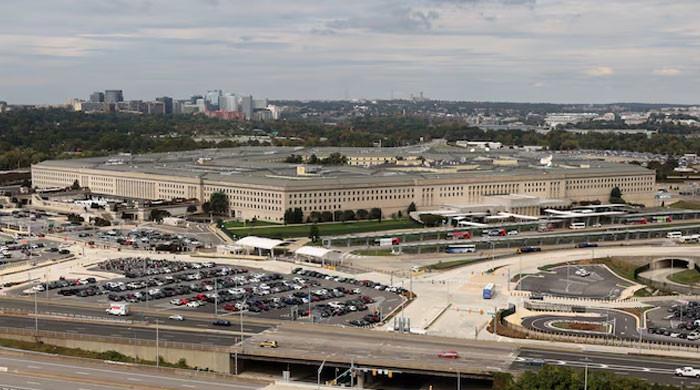
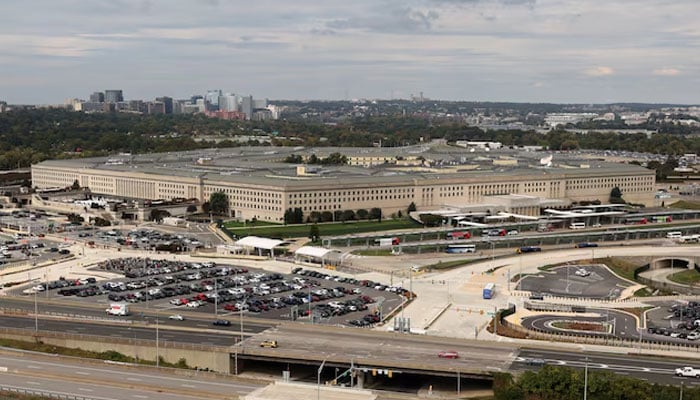
The US military asked mining companies last Friday to help boost domestic supplies of 13 critical minerals used to make semiconductors, weapons and other products, a document reviewed by Reuters showed.
The request, the day before the US and Israel launched strikes on Iran, is the latest example of Washington’s push for more access to the materials used widely in warfare.
The Pentagon asked members of the Defence Industrial Base Consortium (DIBC), a group of more than 1,500 companies, universities and others that supply the military, for proposals to be submitted by March 20 for projects that could mine, process or recycle select minerals, the document showed.
While the DIBC has worked on minerals-related issues for some time, there was no immediate indication as to whether the timing was intentionally coordinated to coincide with the start of the strikes on Iran.
The list of 13 minerals sought includes arsenic, bismuth, gadolinium, germanium, graphite, hafnium, nickel, samarium, tungsten, vanadium, ytterbium, yttrium and zirconium.
The US is reliant on imports for most of the 13. China is a dominant global producer of all of them.
DIBC member Guardian Metal Resources plans to apply for funding for its two tungsten projects in Nevada, said J.T. Starzecki, the company’s executive chairman. Tungsten is used to harden steel and China is the world’s largest producer.
“This is the opportunity we’ve been waiting for,” Starzecki told Reuters. “Our plan is to look for an application that would give us a funding package to allow us to get to full production at both sites.”
American Tungsten, which is developing an Idaho mine for that metal, plans to apply for funding next week that would complement a loan it has applied for from the US Export-Import Bank, said CEO Ali Haji.
The Pentagon asked for detailed information on the costs, including labour and material, needed to build a mine or processing facility. Projects could be awarded development funds ranging from $100 million to over $500 million, according to the request.
The document did not specify why only those 13 minerals were chosen. Some — including germanium, graphite and yttrium — have been subject to export restrictions by China, the top global producer.
Yttrium shortages, especially, have set off alarm bells throughout the aerospace industry. One of the 17 rare earths, yttrium is used in coatings that keep engines and turbines from melting at high temperatures. Without regular application of these coatings, engines cannot be used.
Colorado-based Energy, also a DIBC member, said it is developing facilities to process gadolinium and samarium by 2027, and is considering processing yttrium.
“The domestic supply of critical minerals remains essential to safeguarding both national security and economic stability,” said Mark Chalmers, the Energy Fuels CEO.
Nickel is a widely traded metal and Indonesia is the top global producer. Yet Jakarta has been throttling exports of the metal used widely in stainless steel and battery production.
The White House, DIBC and Pentagon did not immediately respond to requests for comment.
Latest request
DIBC’s request is just the latest attempt by the Trump administration to increase US supply of key critical minerals. China has been using its market control as diplomatic leverage in ongoing trade disputes with Washington.
Last month, Trump officials launched a $12 billion minerals stockpile backed by the US Export-Import Bank and proposed a preferential minerals trading bloc with more than 50 allies.
That trading bloc would aim to use reference prices for minerals derived in part by a Pentagon-created artificial intelligence programme, Reuters reported last week.
The administration has also taken equity stakes in rare earths miner MP Materials, Lithium Americas, and copper-and-cobalt developer Trilogy Metals.
Separately on Wednesday, the Defence Logistics Agency, which buys a range of goods for the US military, asked for information from miners on potentially acquiring lithium, chromium and tellurium for military stockpiles.
Politics
How many countries has US bombed since 9/11, and what has it cost?
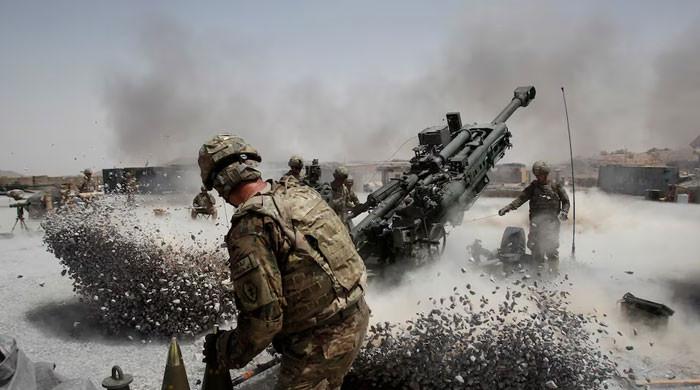
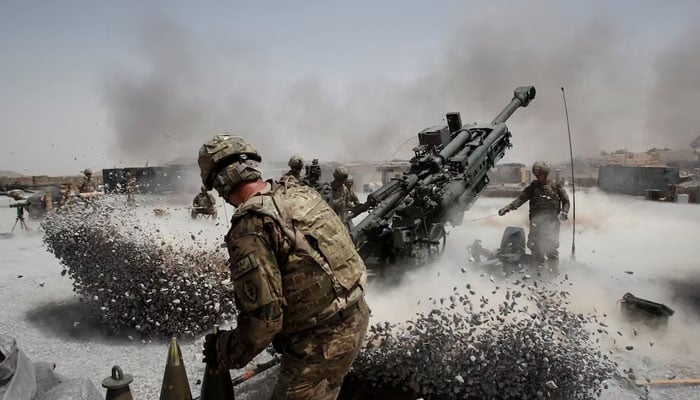
Despite promising to end United States’ involvement in costly and destructive foreign wars, President Donald Trump, together with Israel, has launched a massive military assault on Iran, targeting its leadership as well as its nuclear and missile infrastructure.
Since the September 11, 2001, attacks on New York and Washington DC, the United States has engaged in three full-scale wars and conducted bombing operations in at least 10 countries. These operations have ranged from large-scale invasions to targeted air strikes and drone campaigns, often carried out over multiple years.
In the immediate aftermath of 9/11, then-President George W Bush declared a “war on terror”, launching a global military campaign that reshaped US foreign policy.
The wars in Afghanistan and Iraq were followed by military operations in Pakistan, Syria, Yemen and other regions, as successive administrations expanded or sustained counterterrorism efforts.
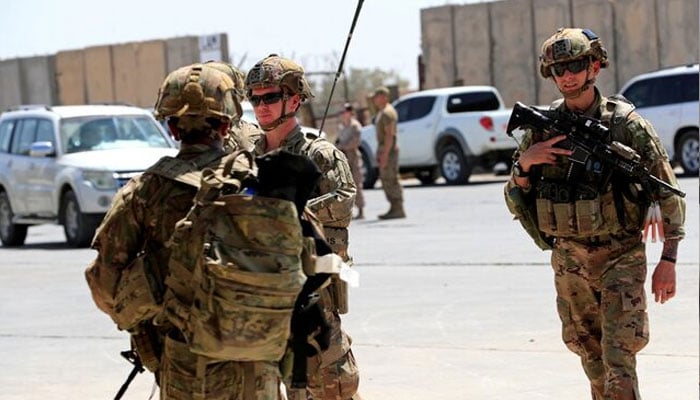
Two decades of war and its costs
Research by Brown University’s Watson Institute for International and Public Affairs estimates that US-led wars since 2001 have directly caused approximately 940,000 deaths across Afghanistan, Pakistan, Iraq, Syria, Yemen and other conflict zones, according to Al Jazeera report.
The figure excludes indirect deaths resulting from displacement, destruction of infrastructure, limited access to healthcare and food shortages, the report said.
According to the report, the United States has spent an estimated $5.8 trillion on post-9/11 wars. This includes $2.1 trillion allocated by the Department of Defence, $1.1 trillion by the Department of Homeland Security, $884 billion added to the Pentagon’s base budget, $465 billion for veterans’ medical care and roughly $1 trillion in interest payments on war-related borrowing.
In addition, the US is projected to spend at least another $2.2 trillion on veterans’ care over the next three decades, bringing the total estimated cost of its post-2001 wars to approximately $8 trillion.
Politics
Trump betrayed diplomacy, Americans by attacking Iran: FM Araghchi
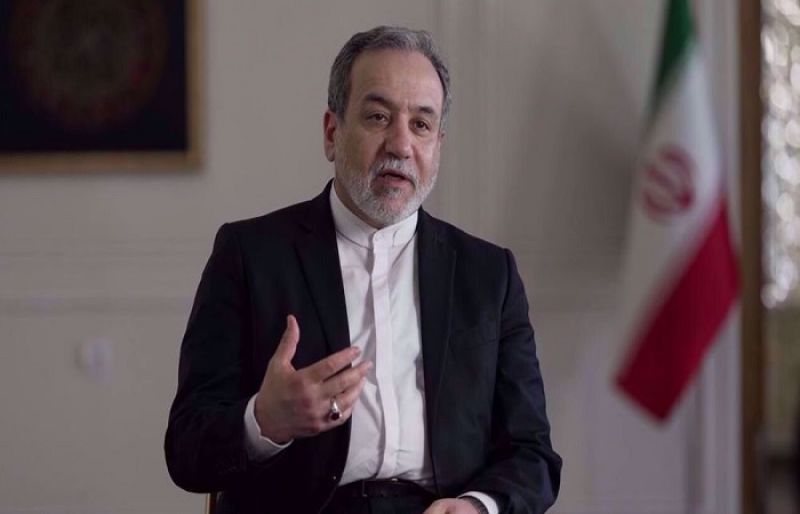

Iran’s Foreign Minister Abbas Araghchi says US President Donald Trump betrayed both the indirect negotiations with Tehran and the American people by launching unprovoked aggression against Iran.
In a post published on social media platform X on Wednesday, Araghchi said, “When complex nuclear negotiations are treated like a real estate transaction, and when big lies cloud realities, unrealistic expectations can never be met. The outcome? Bombing the negotiation table out of spite.”
“Mr. Trump betrayed diplomacy and Americans who elected him,” added the top diplomat.
Iran and the US were in the midst of indirect negotiations regarding Iran’s nuclear program, with Iranian negotiators and the Omani mediators expressing strong hope that an agreement could be reached.
On Friday, one day before the Israeli-US aggression against Iran and immediately after the third round of negotiations in Geneva, Switzerland, Omani diplomats went so far as to say that a new comprehensive agreement was closer than ever.
However, on Saturday, Israeli and US armed forces launched a series of attacks against strategic targets across Iran, killing several senior officials.
Trump’s especial envoy to West Asia Steve Witkoff, head of the US negotiating team, had earlier tried to pave the way for the US aggression on Iran by falsely claiming that it was the Iranian side that had undermined the process.
However, a diplomat familiar with the process of the negotiations told MS NOW that Witkoff’s claims are completely false and Iranians were open to a fair but comprehensive agreement with the US.
“I can categorically state that this is inaccurate,” said the diplomat, referring to Witkoff’s account.
According to the Persian Gulf diplomat, who spoke on condition of anonymity, the Iranian delegation had told Witkoff during indirect negotiations on Iran’s nuclear program that Tehran enriched the uranium after Trump pulled the US out of a 2015 nuclear agreement brokered by former President Barack Obama’s administration.
Scores of Iranian cities have been targeted in the US-Israeli aggression. Leader of the Islamic Revolution Ayatollah Seyyed Ali Khamenei was assassinated in the Saturday attack.
Since then, Iranian armed forces have swiftly and decisively retaliated against these strikes by launching barrages of missile and drones against Israeli-occupied territories as well as on US bases in region.
Iranian officials have stated that targeting US military bases in the region constitutes “legitimate self-defense.”
Referring to Article 51 of the Charter of the United Nations, they said that Iran has the legal right to defend itself against “acts of aggression” by the US or the Israeli regime.
-

 Business6 days ago
Business6 days agoIndia Us Trade Deal: Fresh look at India-US trade deal? May be ‘rebalanced’ if circumstances change, says Piyush Goyal – The Times of India
-

 Business1 week ago
Business1 week agoHouseholds set for lower energy bills amid price cap shake-up
-

 Politics7 days ago
Politics7 days agoWhat are Iran’s ballistic missile capabilities?
-
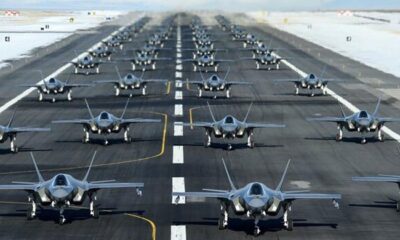
 Politics7 days ago
Politics7 days agoUS arrests ex-Air Force pilot for ‘training’ Chinese military
-
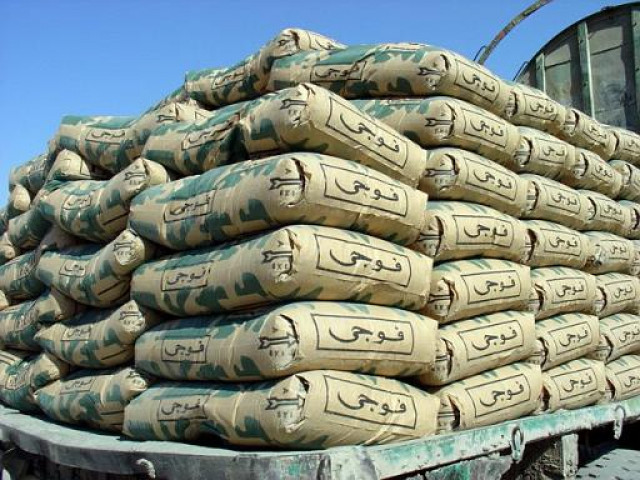
 Business6 days ago
Business6 days agoAttock Cement’s acquisition approved | The Express Tribune
-
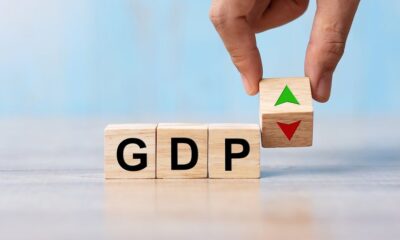
 Fashion1 week ago
Fashion1 week agoOECD GDP growth slows to 0.3% in Q4 amid mixed trends
-

 Fashion6 days ago
Fashion6 days agoPolicy easing drives Argentina’s garment import surge in 2025
-

 Sports1 week ago
Sports1 week agoTop 50 USMNT players of 2026, ranked by club form: USMNT Player Performance Index returns






